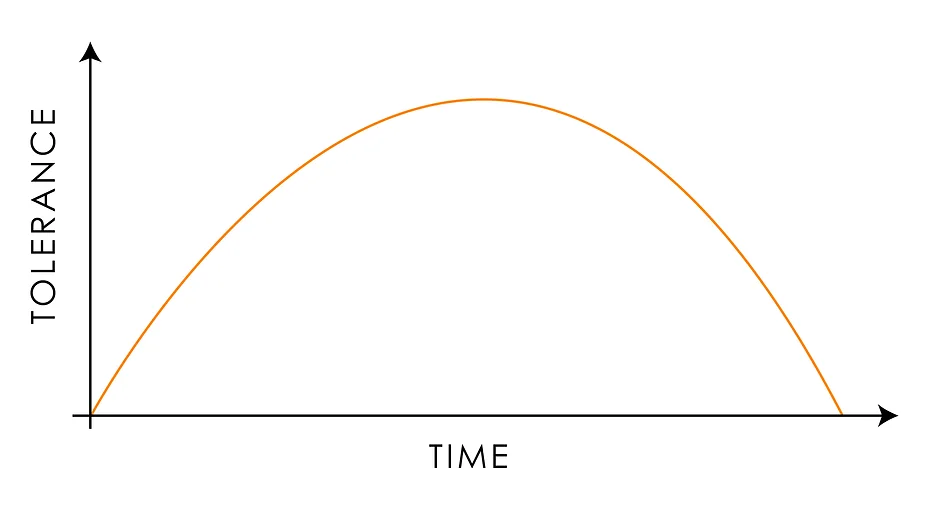Learn to evolve your Tolerance Threshold
Tolerance: Sympathy or indulgence for beliefs or practices differing from or conflicting with one’s own.
Tolerance is an integral part of our social fabric, something we’re taught about from a very young age. From sharing our toy, to eating what is served while visiting as a guest. From sharing the dorm room to co-working spaces. It’s this virtue of keeping our differences and prejudices aside and be at our civil best, which forms the basis of our ‘Tolerance Threshold’.
Also, an extensive research published by Hjerm, M., Eger, M.A., Bohman, A. et al. as A New Approach to the Study of Tolerance: Conceptualizing and Measuring Acceptance, Respect, and Appreciation of Difference on 9 September 2019 interestingly evaluates tolerance’s relationship to prejudice and they found that only an appreciation of difference has the potential to reduce prejudice. The paper sheds great insight into our understanding of Tolerance and Prejudice.

The United Nations Educational, Scientific and Cultural Organization (UNESCO, 1995) aptly states that “Tolerance is harmony in difference”. While on our quest to find like-minded people who share our ideologies and interests, we often bump into people who are the polar opposite of who we are, or what we believe in, or what we like/dislike. The virtue of Tolerance is put to test under such circumstances and teaches us to accept people for who they are and respect their opinions.
Disagreement does not equal intolerance. It is merely a difference of opinion. A circumstance where the “Let’s agree to disagree” stance should be practiced. It does not mean that you have to accept or embrace the other person’s words, actions, or ideas that go against your values or beliefs. It simply means that you mutually agree to respect each other’s right to your feelings and opinions on the matter. Especially so when it comes to controversial issues such as religion and/or politics, agreeing to disagree is often the most amicable outcome.

It is my understanding that Tolerance is an extension of Patience (which we have talked about in our previous blog post). However, just like Silence and Patience, Tolerance beyond a certain degree can too have an adverse impact either on your mental health and/or your well-being. Have we evolved or grown enough and learned where to draw the line for our Tolerance? How much Tolerance is too much Tolerance? How do we decide when we’ve had enough? The answers to these questions are subjective and can be only addressed by keeping the circumstances and history in mind. However, it does leave a thought for us to ponder over, as all of us are dealing one with the situation after the other. Pause. Assess and reassess. Evaluate the repercussions. Decide. There’s no easy way out nor any shortcuts.
However, there are instances where we all tend to maintain a certain degree of Tolerance and issues where we (individually or collectively) lack them.
We tend to maintain Tolerance:
- towards what our friends and/or loved ones do and say. Our love and empathy increase one’s threshold of tolerance when it comes to someone whom we know.
- towards what colleagues/superiors do and say. Whether you admit it or not, almost always we too have an ulterior motive for putting up with what our colleagues and/or bosses say or do. No judgment there!
- towards local issues. Local governing body doing shoddy work. Waste management is sub-par. Roads are forever pitted with potholes. The list can be extensive, yet we get on with our lives, tolerating what is happening around us with the hope that it will be resolved one day.
- towards macro issues. There’s bias and discrimination all around us. Almost every country is grappling with it. There’s racial bias in the US, caste bias in India, worst of all – gender bias in almost all the countries. Developing or developed, why do women have to fight for everything? Yet, we’re tolerant, waiting patiently that things will take the right course, while some choose to act and bring about the change.
Then there are areas where we lack Tolerance:
- When something doesn’t go as we planned or expected, the way we wanted it to. It triggers everyone and one’s Tolerance Threshold is immediately lowered.
- No one likes taking instructions, if they do then they’re just obligated to – either at their workplace or they owe someone something.
- Politically motivated acts with an ulterior motive, instigating people to voice out as a whole. Igniting unrest and lowering tolerance.
- Inability to take humor objectively and sensationalize everything. One scene in a movie that doesn’t resonate with your beliefs? Log on to social media immediately to berate it. The lyrics of a song that you don’t agree with? Call it out for being anti-whatever.
Collectively, we the people, ought to be on the same page towards intolerance about things that truly need our attention. Power resting in the hands of a few. Climate change. The list goes on and affects everyone, irrespective of your socio-economic background.
Let’s introspect towards finding that fine line where Tolerance results in abuse. It is subjective. Do your bit.
